
Person Teaches Company To Double-Check Email Addresses After Joining Their Chat To Cause Chaos
Interview With ExpertSpam is, unfortunately, an unavoidable side effect of having an email address. At this point, most of us have probably already given up on trying to keep up with our inboxes overflowing with various promotions, newsletters, and money offerings from African princes and just ignore them. However, some persist and refuse to succumb to this modern issue, finding ingenious ways to put an end to it.
Just like this person, who, after being spammed with random company emails, tried messing with them in return. Their actions definitely worked, as the emails stopped, and as a bonus, they got some giggles out of it too.
Scroll down to find the full story and conversation with Rajvardhan Oak, cyber security author and online fraud and scam researcher, and regional chief security officer Winifred Ndukwe, who kindly agreed to tell us more about spam emails and how to avoid them.
Many people have already given up fighting with spam and choose just to ignore it
Image credits: Wavebreak Media / freepik (not the actual photo)
But not this person, who pettily got back at the company that randomly started spamming him with emails
Image credits: freepik
Image credits: BiackPanda
160 billion spam emails are sent every day
Image credits: Racool_studio / freepik (not the actual photo)
Out of 347 billion daily emails sent, 160 billion are spam emails. This means that almost half of the letters that end up in our digital inboxes are unnecessary junk.
But how do spammers know where to send these unsolicited messages? “A person’s email can become susceptible to spam through various means, such as public exposure (e.g., sharing it in online forums or on social media), or data breaches at websites or services they use (breached data is often sold on the dark web),” explains Rajvardhan Oak, cyber security author and online fraud and scam researcher.
“Sometimes spammers will scrape public registries (such as those of public universities) to obtain addresses to spam,” he adds.
The content of spam emails can range from advertisements and subscriptions to fake giveaways and job offers, which can pose a real threat. “Beyond being a nuisance that clutters inboxes, spam emails are often used as vehicles for phishing attacks, where malicious actors impersonate legitimate entities to steal sensitive information such as login credentials, banking details, or personal data,” says Oak.
“For individuals, this can lead to identity theft, and for organizations, it can mean financial loss, data breaches, or even reputational damage,” warns regional chief security officer Winifred Ndukwe.
To avoid spam emails, it’s recommended to use a reliable email provider, like Gmail or Outlook
Image credits: freepik (not the actual photo)
To avoid spam emails and protect ourselves from potential scam attacks, Oak recommends using a reliable email provider with robust spam filters, like Gmail or Outlook. “Ensure these filters are configured to automatically detect and segregate spam emails into a separate folder,” he notes.
He also advises refraining from sharing email addresses publicly on forums, websites, or social media. This helps to reduce your visibility to spammers and bots.
“Use a secondary email address for sign-ups, newsletters, or online purchases to protect your primary inbox. Unsubscribe from unwanted newsletters or marketing emails through legitimate links provided, but never interact with unknown or suspicious emails, as this confirms your address is active,” he adds.
Oak additionally suggests periodically reviewing spam sources, blocking them, and reporting them to the email provider. “This provides ground truth labels and helps them improve the machine learning models that are detecting spam.”
For extra protection, Ndukwe recommends enabling multi-factor authentication (MFA) and using strong, unique passwords to secure your accounts. She also warns to not engage with any links in spam emails, as it can make us bigger threats to spam and phishing attacks.
“What might look like a harmless email could be the first step in a sophisticated attack. What worked to protect you last year might need tweaking now, so it’s important to stay informed and cautious,” says Ndukwe.
The author provided more details about the situation in the comments
Commenters applauded author for coming up with an ingenious way to end the spam
Others also chimed in, sharing similar stories
Poll Question
Thanks! Check out the results:
A woman in the UK apparently uses my email for her eBay purchases. There’s no way to contact eBay. I have her address so I’ve thought about writing her a very nice, “Not sure if you’ve realized it…” letter.
Of course you can contact eBay. I have several times.
Load More Replies...Some 25 years ago, we started receiving group mail from à white-water kayaking group. I contacted our provider, who answered that it was absolutely impossible for two people to have the same address, but obviously one of the group had the same adress as my husband. Then some friends of theirs had a fatal kayaking accident, which was described in great détail on the group mail ( think the movie "Deliverance") and I wrote to all of them saying we were sorry for their friends, but we'd like to be left out of it. Guess the one who had the same address as my husband changed his email, and we never heard from them again.
A woman in the UK apparently uses my email for her eBay purchases. There’s no way to contact eBay. I have her address so I’ve thought about writing her a very nice, “Not sure if you’ve realized it…” letter.
Of course you can contact eBay. I have several times.
Load More Replies...Some 25 years ago, we started receiving group mail from à white-water kayaking group. I contacted our provider, who answered that it was absolutely impossible for two people to have the same address, but obviously one of the group had the same adress as my husband. Then some friends of theirs had a fatal kayaking accident, which was described in great détail on the group mail ( think the movie "Deliverance") and I wrote to all of them saying we were sorry for their friends, but we'd like to be left out of it. Guess the one who had the same address as my husband changed his email, and we never heard from them again.

 Dark Mode
Dark Mode 

 No fees, cancel anytime
No fees, cancel anytime 



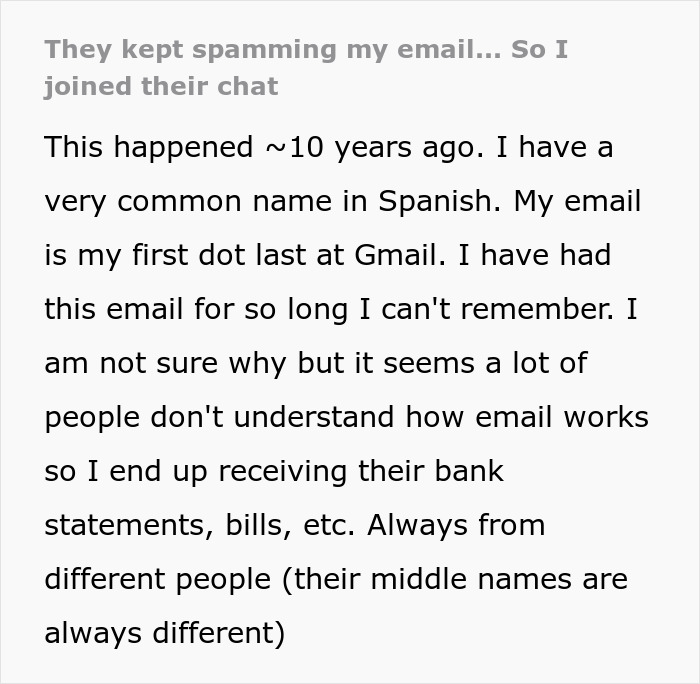
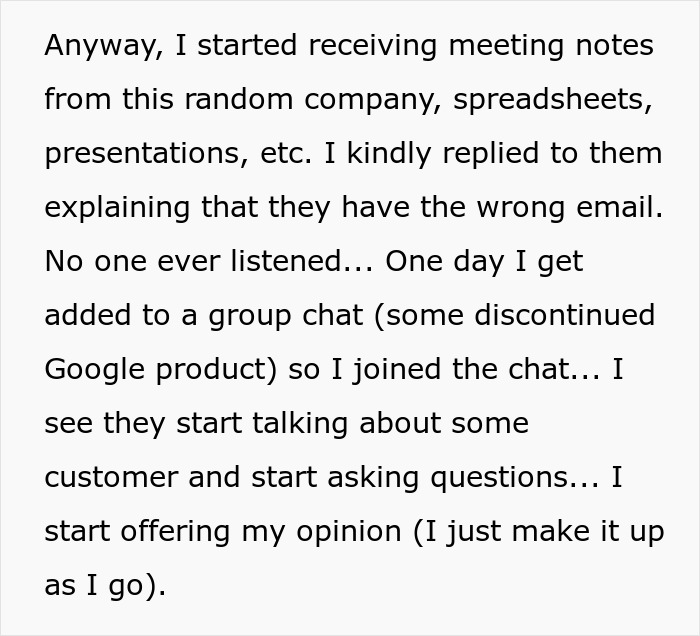
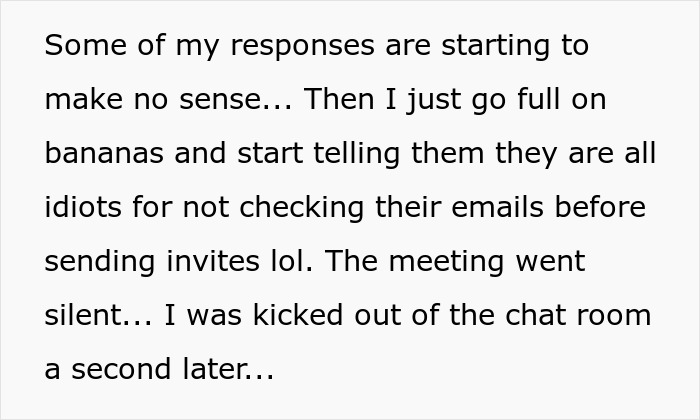
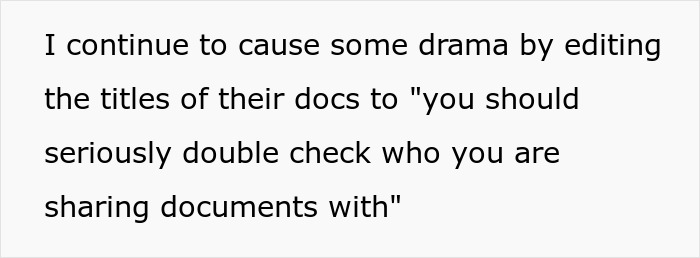
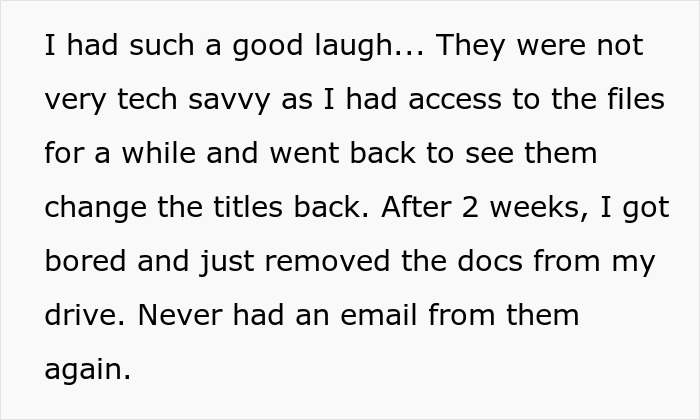
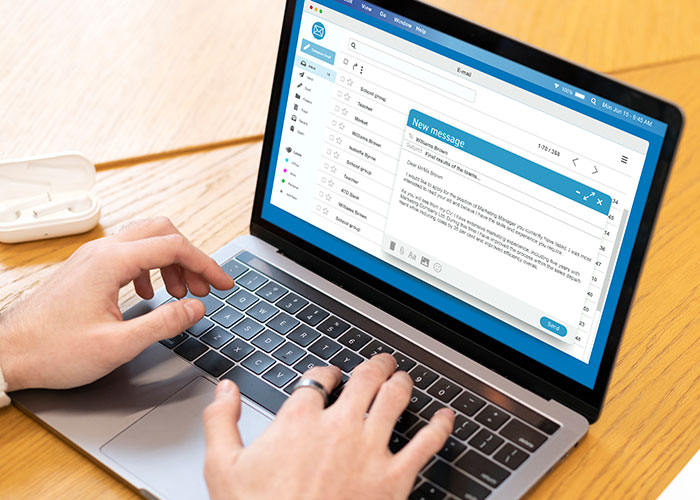

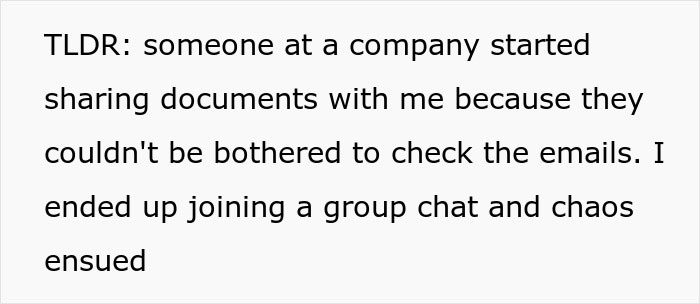
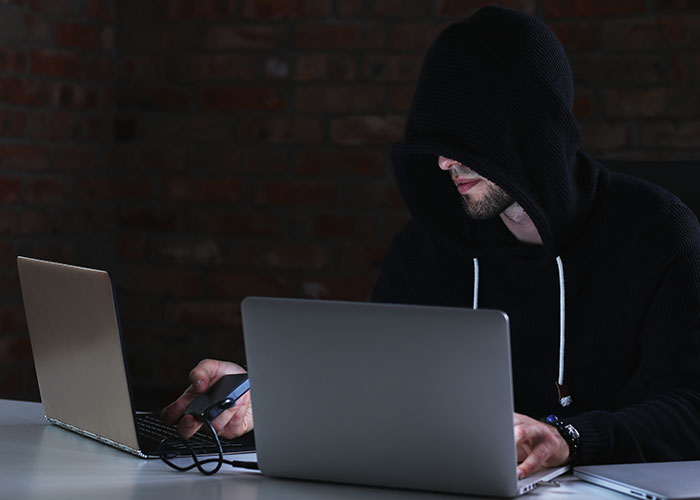

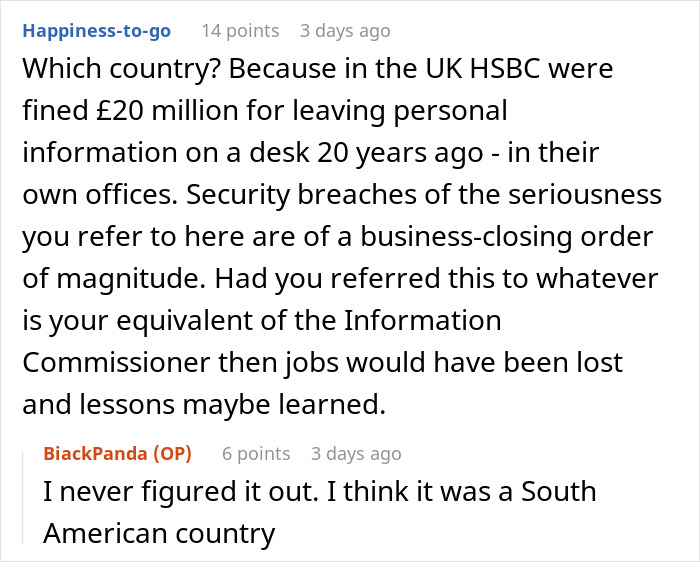
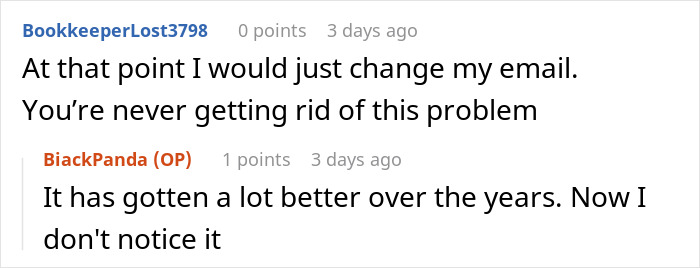
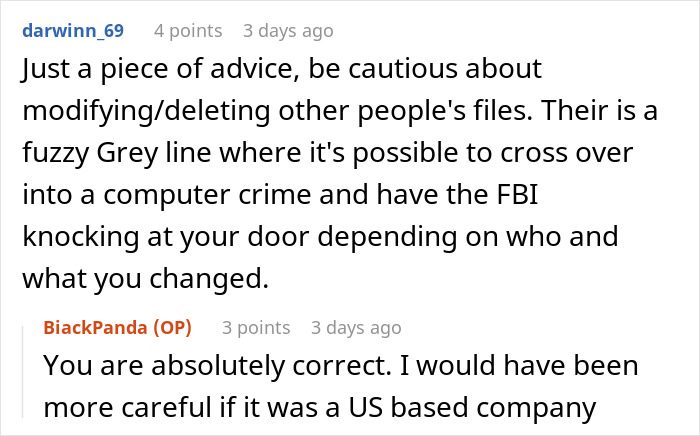

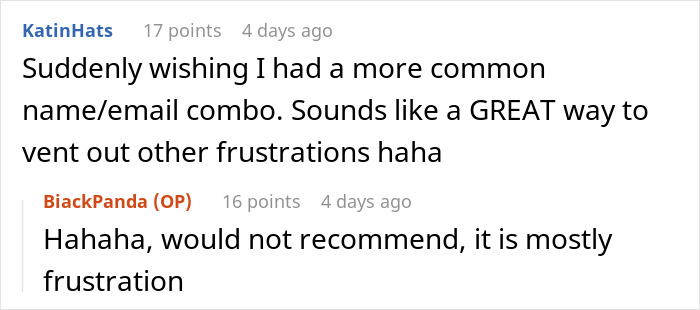
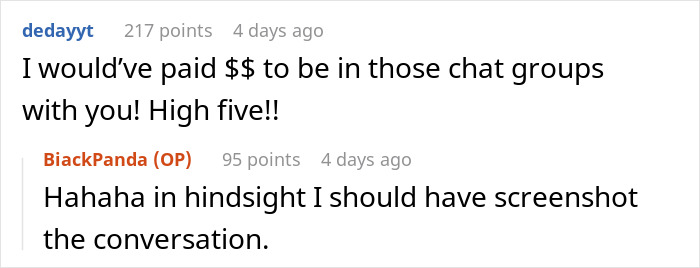
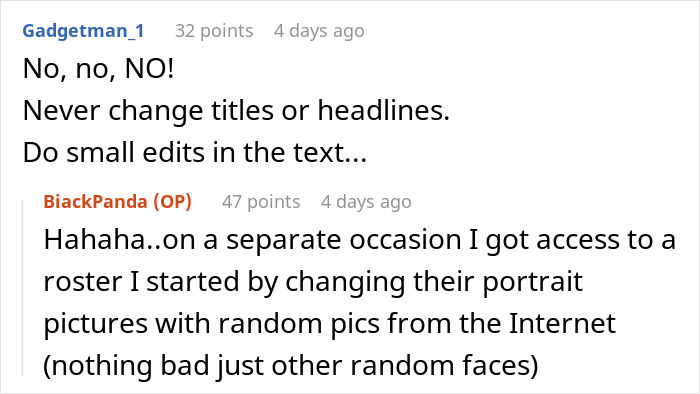
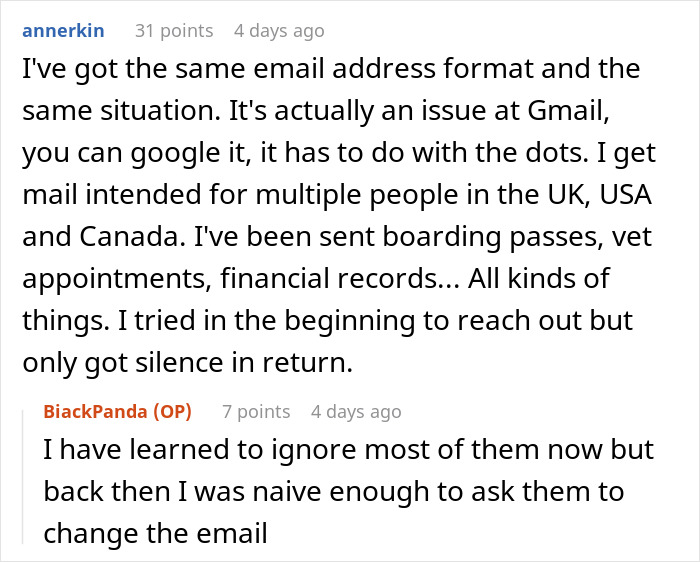
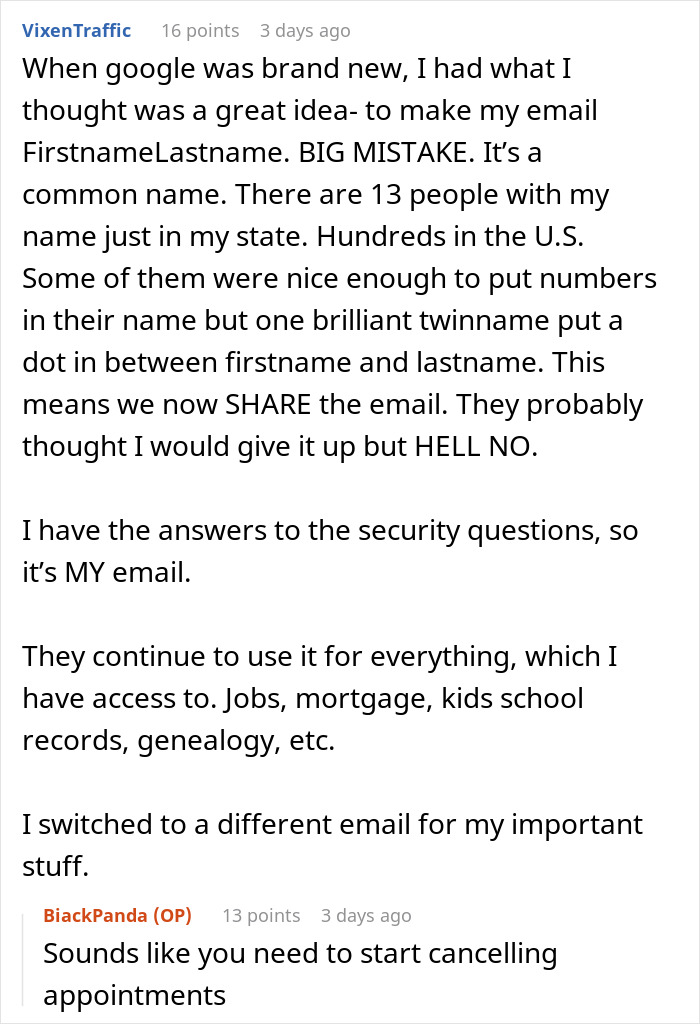

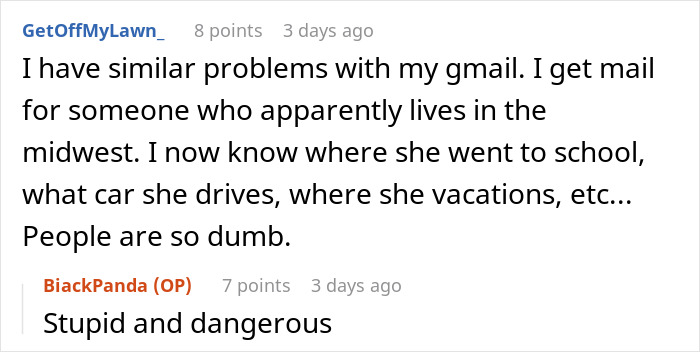
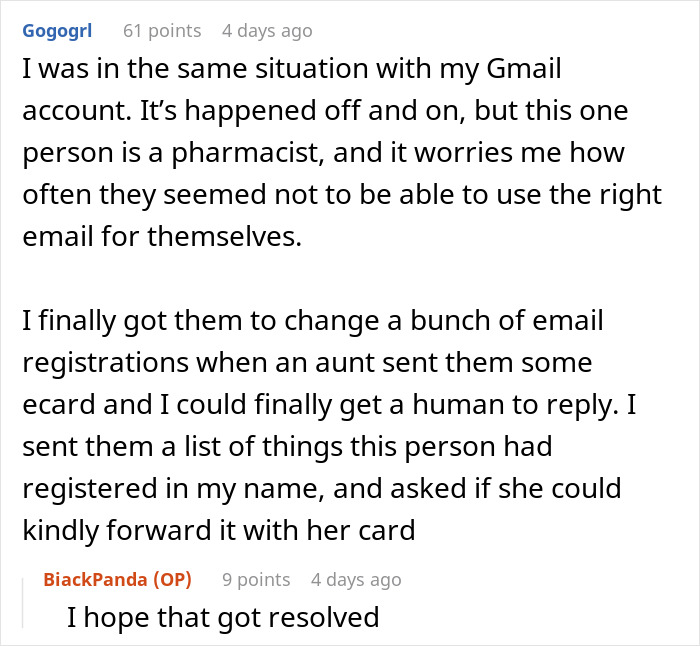
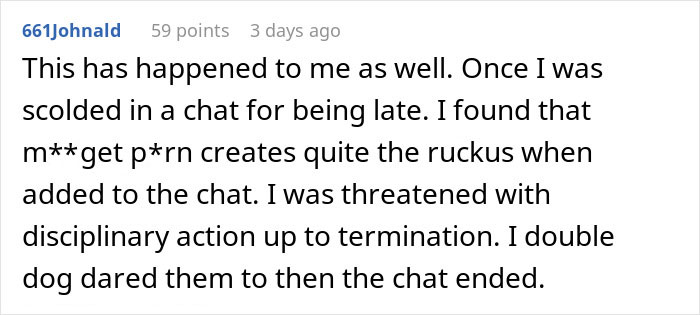
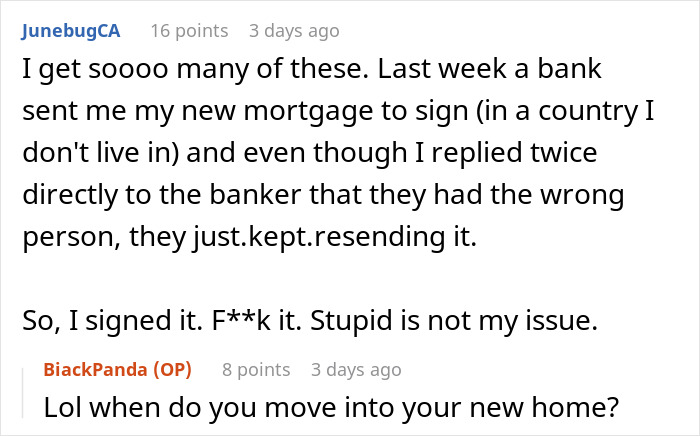
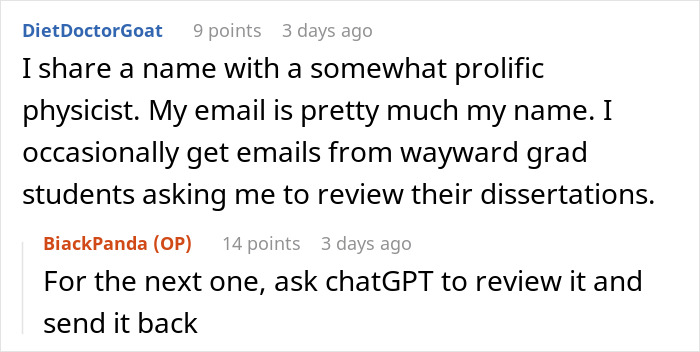
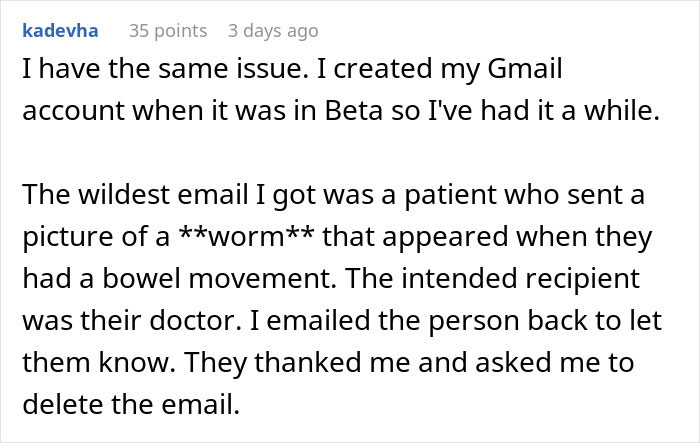
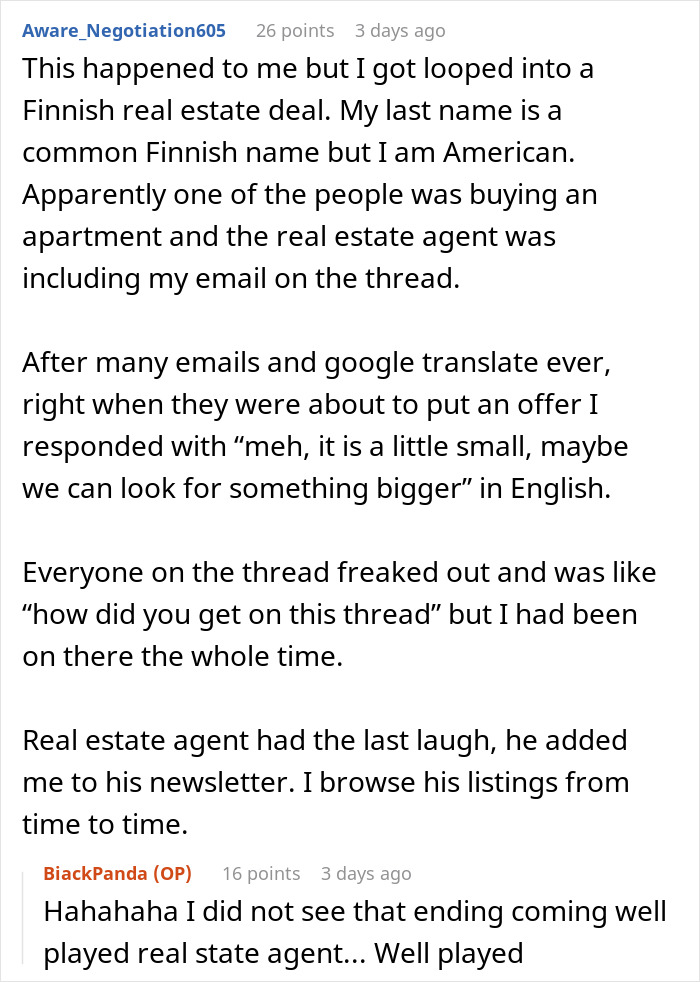
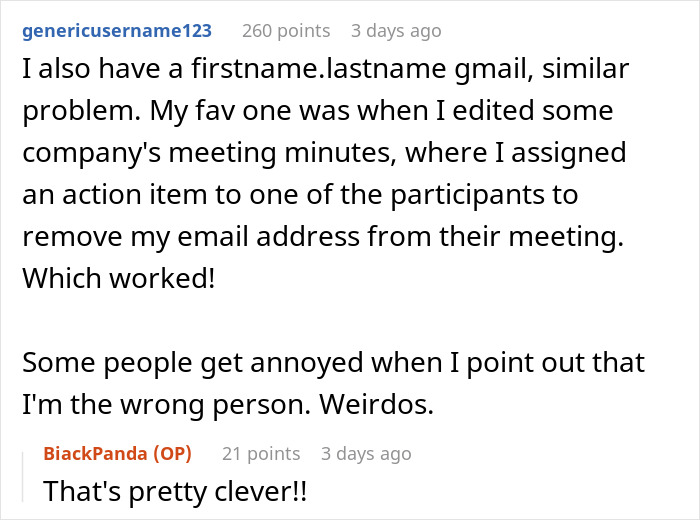
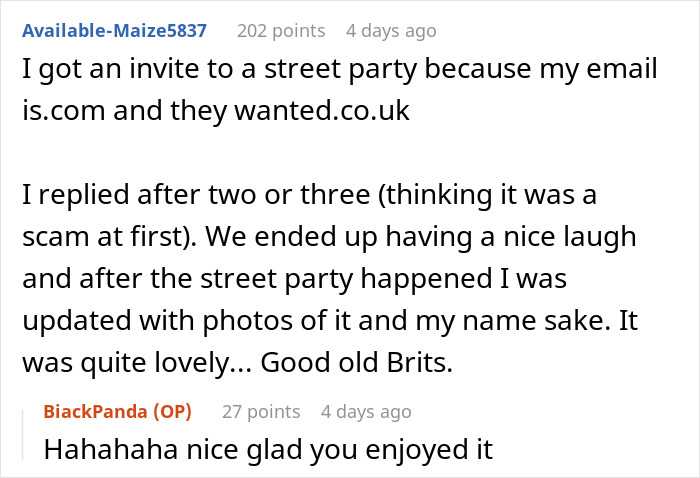
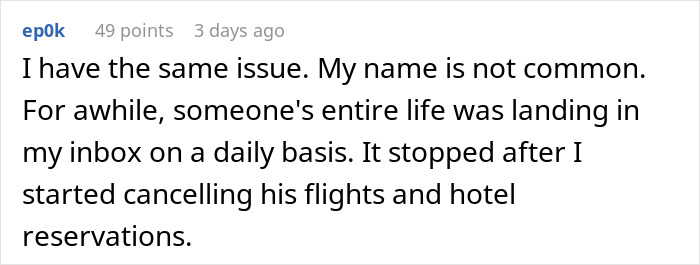

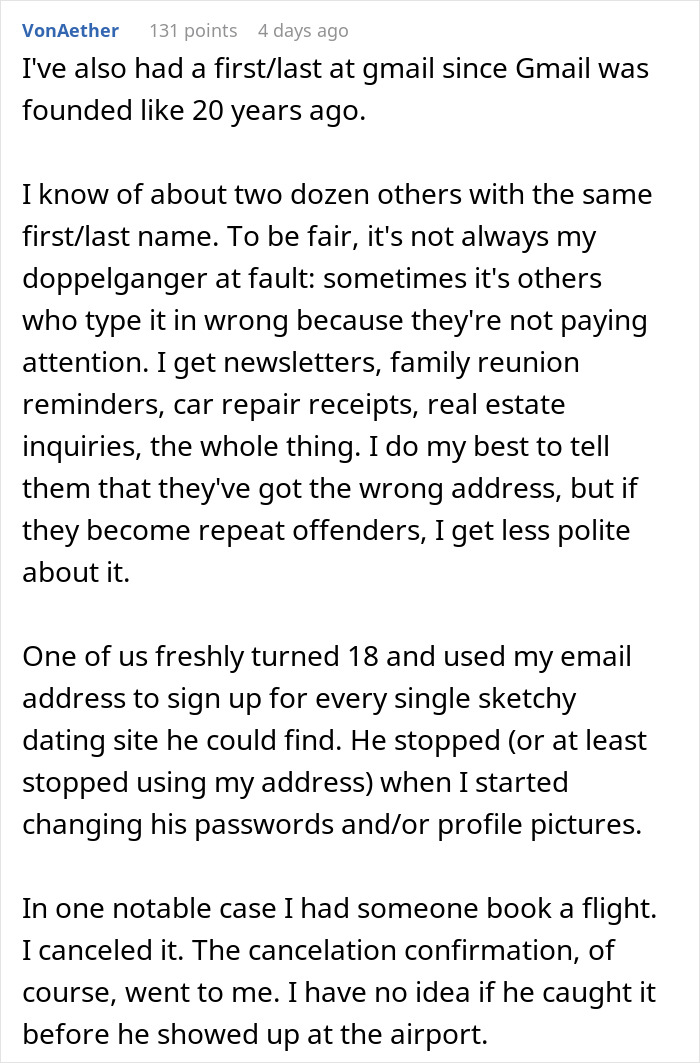
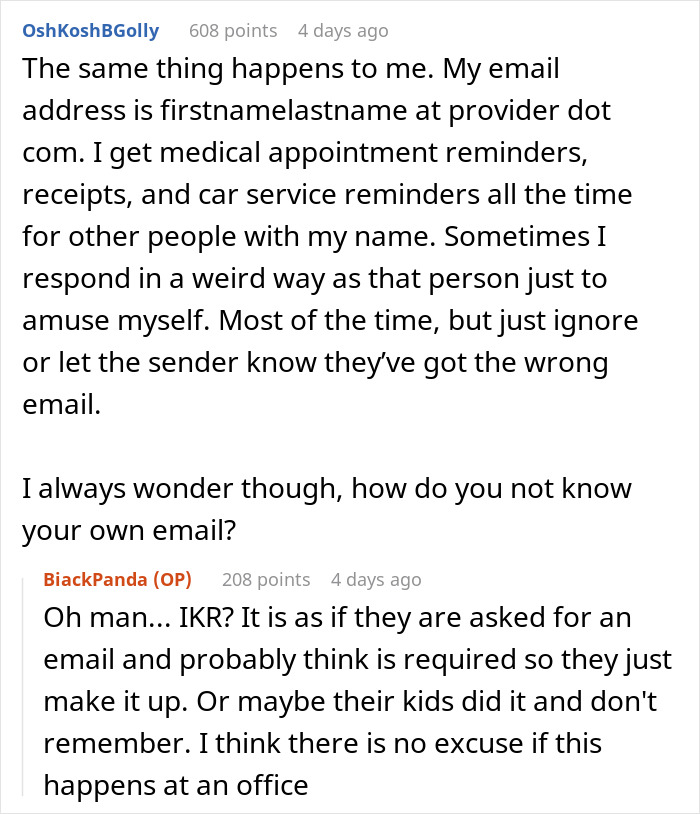
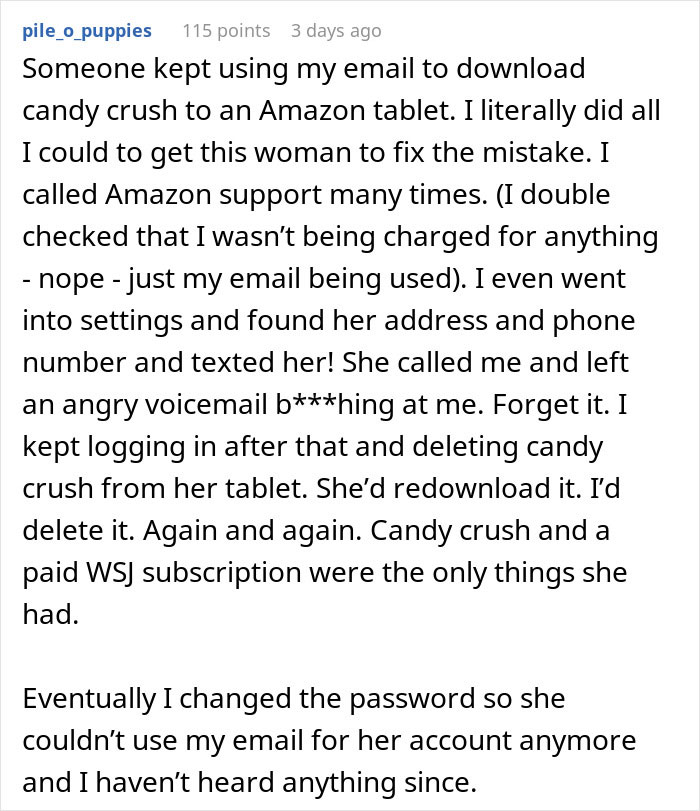
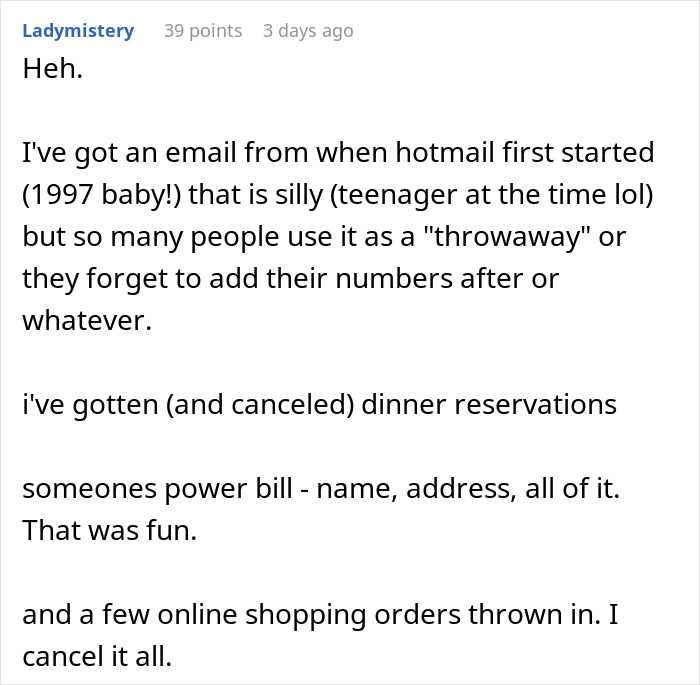
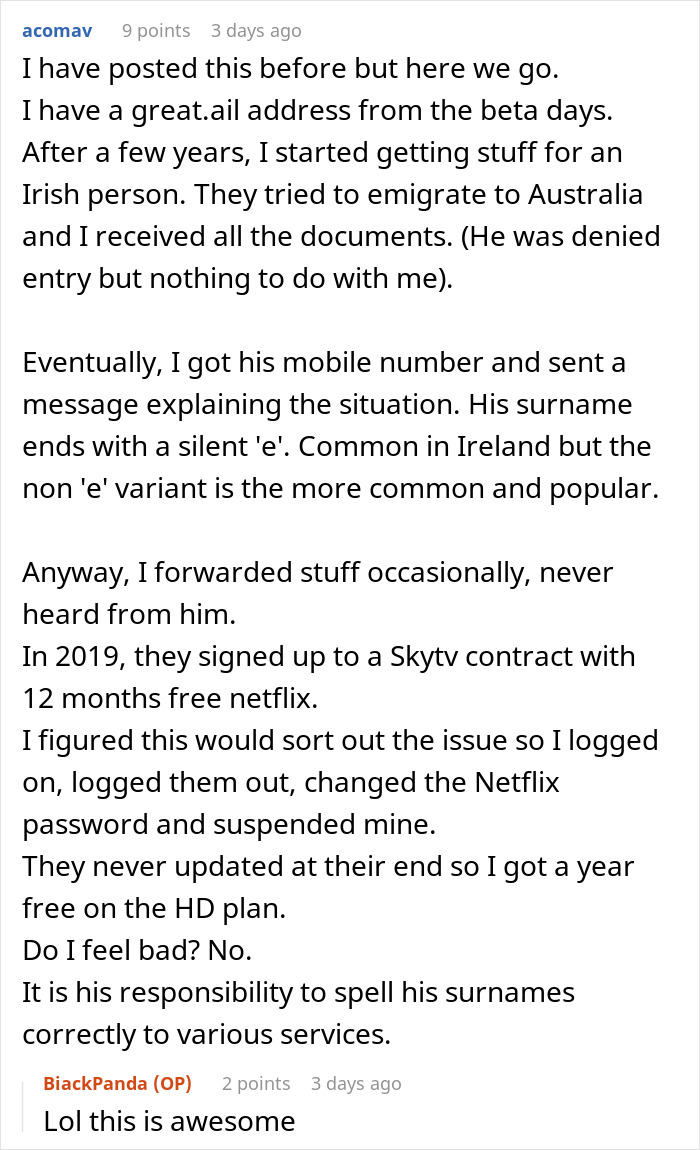











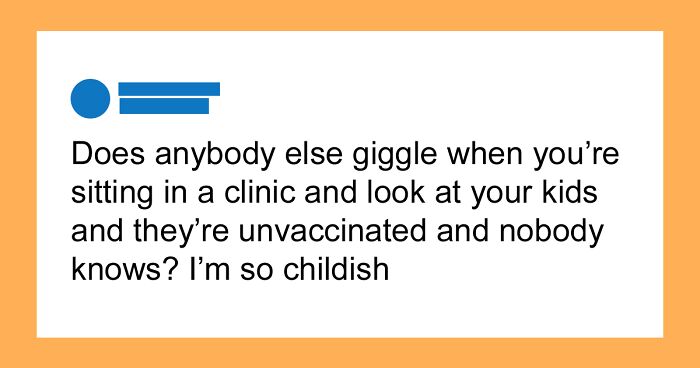









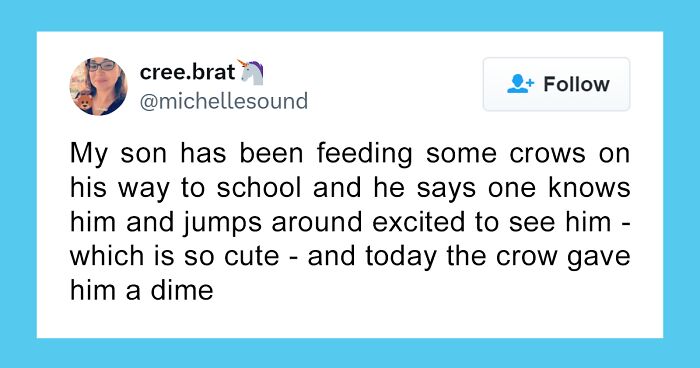


24
9